Maestría en Proyectos y Edificación Sustentables
MARIA_PAULA_ZUNIGA_WHATS_CTA3
Inicia tu proceso de admisión vía WhatsApp
MPES_ESTE_POSGRADO_CTA2
Este posgrado
Proyecta e implementa sistemas de edificación y propuestas de intervención capaces de reducir los impactos en el hábitat.

Dra. Gabriela Ochoa Covarrubias
Doctora y maestra en Ingeniería Civil (Universidad de Granada y Escuela Politécnica de Montreal, respectivamente); ingeniera Civil (ITESO). Tiene experiencia profesional en topografía, diseño y construcción de redes de agua potable y alcantarillado, movimiento de tierras y diseño geométrico de carreteras en el sector privado; así como en geomática y en sistemas de información geográfica en el sector público. Como investigadora, ha colaborado con el Laboratorio del Hábitat para Personas Adultas Mayores y coordina el Seminario Permanente de Estudios de Movilidad Urbana del ITESO.
Ver más


CUERPO_ACADEMICO_MPES_CTA
Cuerpo académico
esta maestría
Desarrollas un proyecto que proponga soluciones reales con un enfoque integral que contempla la sustentabilidad en sus dimensiones ambiental, social y económica.
Participas en programas, iniciativas, investigaciones e intervenciones para implementar alternativas tecnológicas que avancen hacia la transición a un hábitat sustentable.
Recibes acompañamiento de un cuerpo académico con experiencia en gestión social, espacios públicos, gobernanza, planeación, y procesos participativos, entre otros.
subtitulo 01
parrafo 01
subtitulo 02
parrafo 02
Este posgrado es para ti
- Profesionales orientados a los procesos de construcción del hábitat con énfasis en la sustentabilidad.
- Egresados y egresadas de licenciaturas relacionadas con el hábitat en los ámbitos de arquitectura, ingeniería civil, ingeniería ambiental, diseño y campos afines.
- Personas con interés y/o experiencia en los ámbitos académico y profesional en temas relacionados con las problemáticas de la construcción y la sustentabilidad del hábitat.
- Profesionales con interés en la construcción y la implementación de alternativas para reducir los impactos de la edificación desde la perspectiva de la sustentabilidad.
- Concebir y llevar a cabo edificaciones y conjuntos urbanos con esquemas viables de financiamiento y con un bajo impacto ambiental, que impulsen una mejor calidad de vida.
- Elaborar proyectos o construcciones sustentables para atender la demanda, tanto del sector privado como de las instituciones del sector público.
- Realizar diagnósticos y consultorías para diversos sectores de la sociedad que requieren identificar, cuantificar y predecir los efectos en el entorno que resultan de las edificaciones e infraestructuras y las opciones para mitigarlos.
- Identificar alternativas tecnológicas para reducir los impactos y gestionar su apropiación con diferentes actores.
- Concebir y llevar a cabo edificaciones y conjuntos urbanos con esquemas viables de financiamiento y con un bajo impacto ambiental, que impulsen una mejor calidad de vida.
- Elaborar proyectos o construcciones sustentables para atender la demanda, tanto del sector privado como de las instituciones del sector público.
- Realizar diagnósticos y consultorías para diversos sectores de la sociedad que requieren identificar, cuantificar y predecir los efectos en el entorno que resultan de las edificaciones e infraestructuras y las opciones para mitigarlos.
LGAC_PROYECTOS_EDIFICACION_SUSTENTABLES_BL5
Líneas de Generación y Aplicación del Conocimiento
Definición
Soluciones espaciales al hábitat inmediato
Transferencias tecnológicas para el mejoramiento del hábitat
Las Líneas de Generación y Aplicación del Conocimiento (LGAC) son los campos temáticos que caracterizan al programa. En ellas confluyen las trayectorias de investigaciones o de trabajo profesional de profesores y estudiantes, desde una perspectiva sistémica de generación de nuevo conocimiento o su aplicación, según su naturaleza y enfoque.
Este posgrado trabaja en la generación de conocimiento y la formación de profesionales que desarrollen proyectos en torno a las siguientes líneas:
Este campo investigativo comprende sublíneas de trabajo relacionadas con:
- La sustentabilidad aplicada en el espacio habitable.
- Conceptualizaciones sobre hábitat y sustentabilidad.
- Procesos de construcción social del hábitat sustentable.
- Marcos normativos hacia la sustentabilidad del hábitat.
- Creatividad y valor agregado para la habitabilidad sustentable.
Este trayecto investigativo abarca sublíneas de trabajo relacionadas con:
- La innovación en tecnología para dispositivos, equipos y materiales.
- La evolución de los paradigmas del desarrollo tecnológico.
- El cambio social y calidad de vida desde la innovación tecnológica.
- La institucionalización de los desarrollos tecnológicos.
Esta línea es compartida con la Maestría en Ciudad y Espacio Público Sustentable).
Líneas de Generación y Aplicación del Conocimiento
Las Líneas de Generación y Aplicación del Conocimiento (LGAC) son los campos temáticos que caracterizan al programa. En ellas confluyen las trayectorias de investigaciones o de trabajo profesional de profesores y estudiantes, desde una perspectiva sistémica de generación de nuevo conocimiento o su aplicación, según su naturaleza y enfoque.
Este posgrado trabaja en la generación de conocimiento y la formación de profesionales que desarrollen proyectos en torno a las siguientes líneas:
Este campo investigativo comprende sublíneas de trabajo relacionadas con:
- La sustentabilidad aplicada en el espacio habitable.
- Conceptualizaciones sobre hábitat y sustentabilidad.
- Procesos de construcción social del hábitat sustentable.
- Marcos normativos hacia la sustentabilidad del hábitat.
- Creatividad y valor agregado para la habitabilidad sustentable.
Este trayecto investigativo abarca sublíneas de trabajo relacionadas con:
- La innovación en tecnología para dispositivos, equipos y materiales.
- La evolución de los paradigmas del desarrollo tecnológico.
- El cambio social y calidad de vida desde la innovación tecnológica.
- La institucionalización de los desarrollos tecnológicos.
Esta línea es compartida con la Maestría en Ciudad y Espacio Público Sustentable).
PLAN_DE_ESTUDIOS_MPES_CTA
Plan de estudios
EXPERIENCIA_POSGRADO_BT1

ITESO’s graduate programs are supported by a renowned academic faculty comprising leading experts in their fields, who are actively engaged in real-world projects that offer concrete solutions. The university boasts over 100 researchers, 79 of whom are affiliated with Mexico’s National System of Researchers (SNII). Some are also members of the Mexican Academy of Sciences.
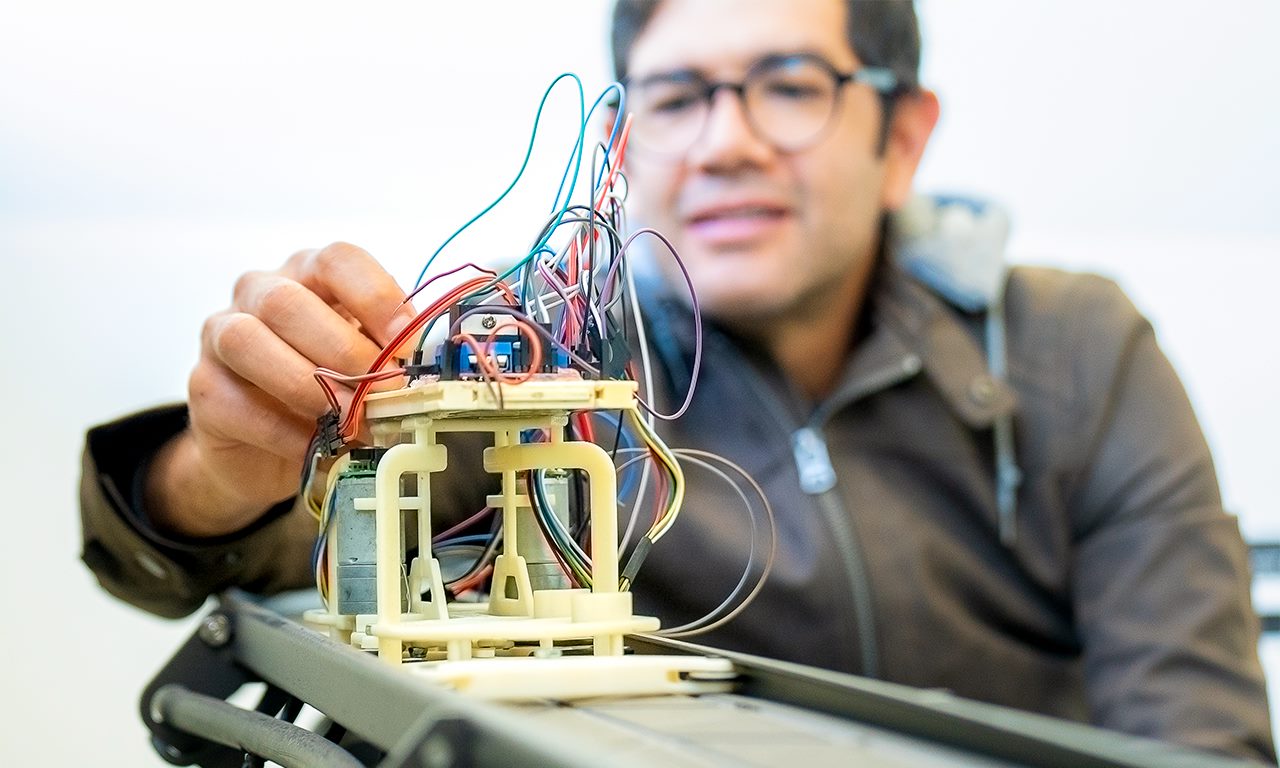
Research at ITESO generates new, rigorous, and relevant knowledge focused on some of the region’s and country’s most pressing challenges. Areas of impact include human rights, access to justice, renewable energy, sustainable resource management, food security, mental health and well-being, quality education, data science, and public communication, among others. These programs aim to offer development alternatives, influence public policy, foster technological innovation, and promote socially impactful projects.

One of the key advantages of ITESO’s graduate programs is the opportunity for international academic exchange through alliances with the International Association of Jesuit Universities (IAJU), a global network of over 320 institutions. Additionally, programs supported by Conacyt offer research stays in Mexico and abroad for fieldwork, study, or the completion of research projects.

Sustainability is an institutional priority that drives research, education, and community engagement projects at ITESO. These initiatives aim to develop comprehensive, long-term strategies for ecosystem stewardship that are in harmony with local communities. ITESO’s campus is one of the most sustainable in the country, and among the few in the world with a protected forest on its grounds.
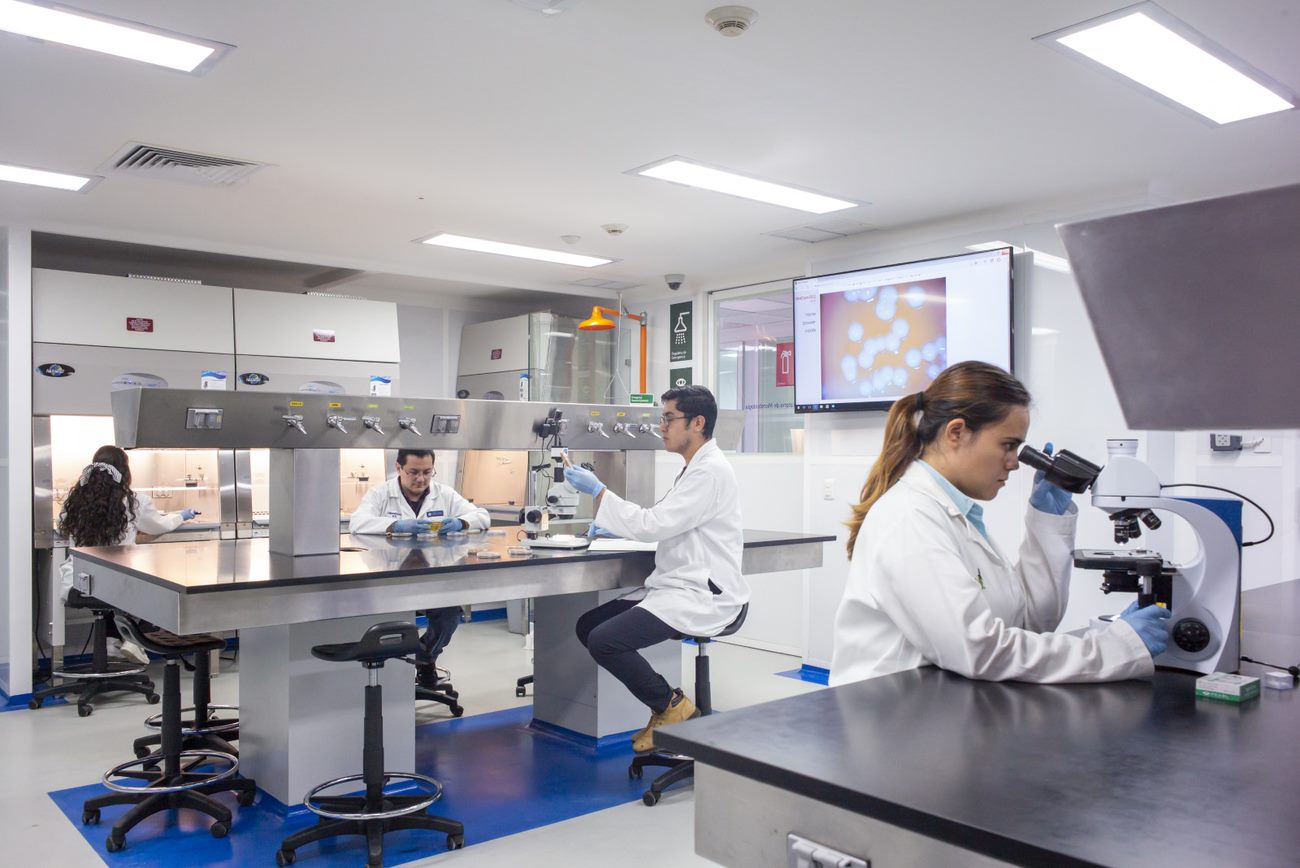
ITESO offers access to more than 100 specialized laboratories in areas such as nanotechnology, data science, food engineering, mechatronics, biotechnology, chemistry, systems, communication, multimedia, languages, nutrition, neuromarketing, arts, building technologies, and more. Facilities also include simulated courtrooms, exhibition spaces, mediation rooms, and audiovisual projection labs.
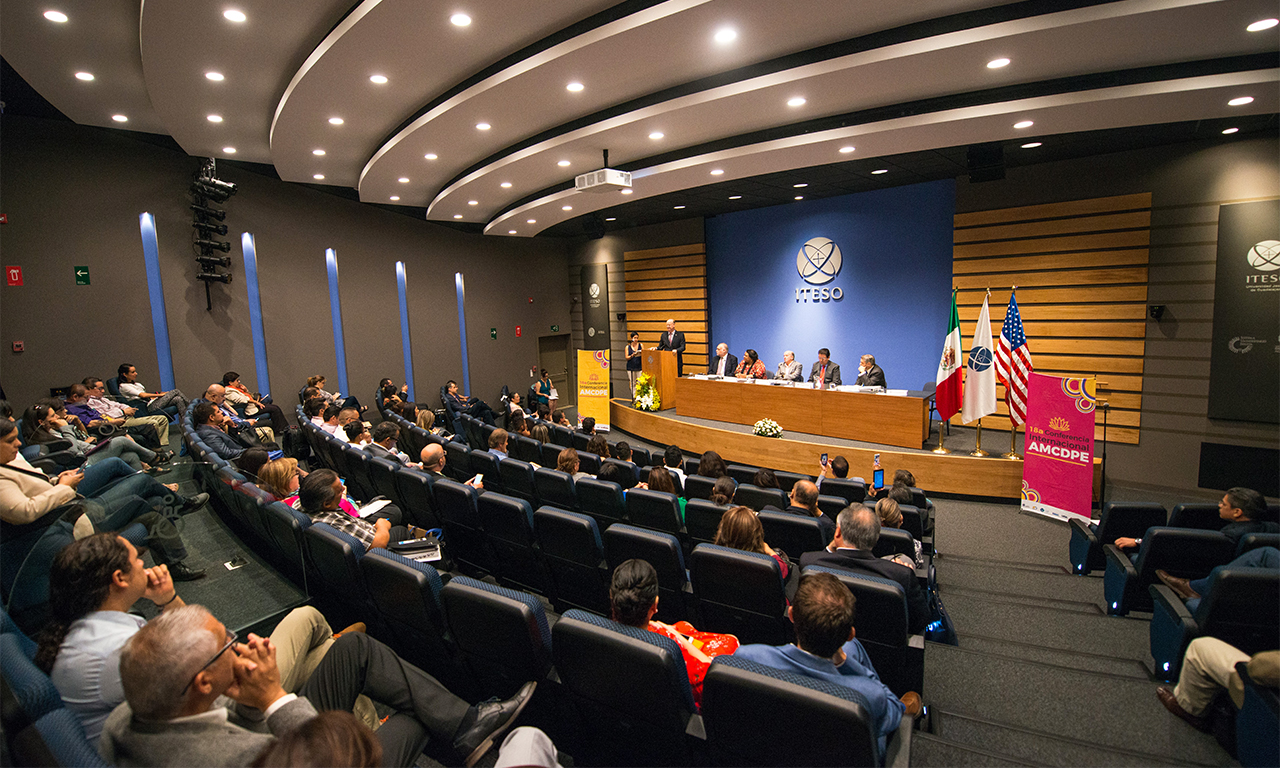
ITESO’s endowed chairs foster dialogue, critical thinking, and the exchange of ideas across sectors. They provide spaces for collaboration between academia, industry, and civil society, aimed at generating knowledge with high social impact. These initiatives also strengthen academic networks and support faculty and student mobility.
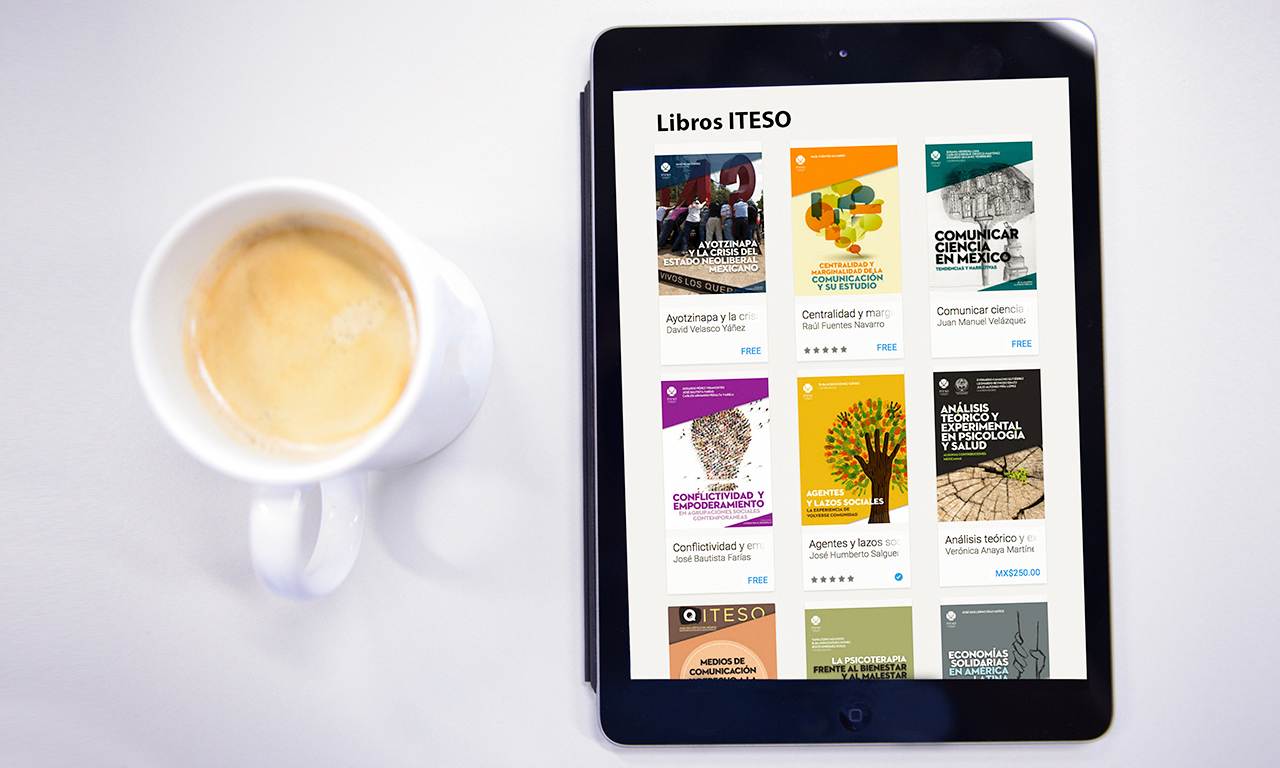
With more than 80 active academic journals and a robust catalogue of books, ITESO leads private universities in the region in scholarly publishing. Publications cover diverse disciplines, promote interdisciplinary collaboration, and are widely accessible—many available for free download online.

ITESO holds the most significant number of industry collaboration agreements among private universities in western Mexico. The university also offers dual-degree programs with institutions such as the University of Koblenz (Germany), Boston College, and Central Michigan University (USA).
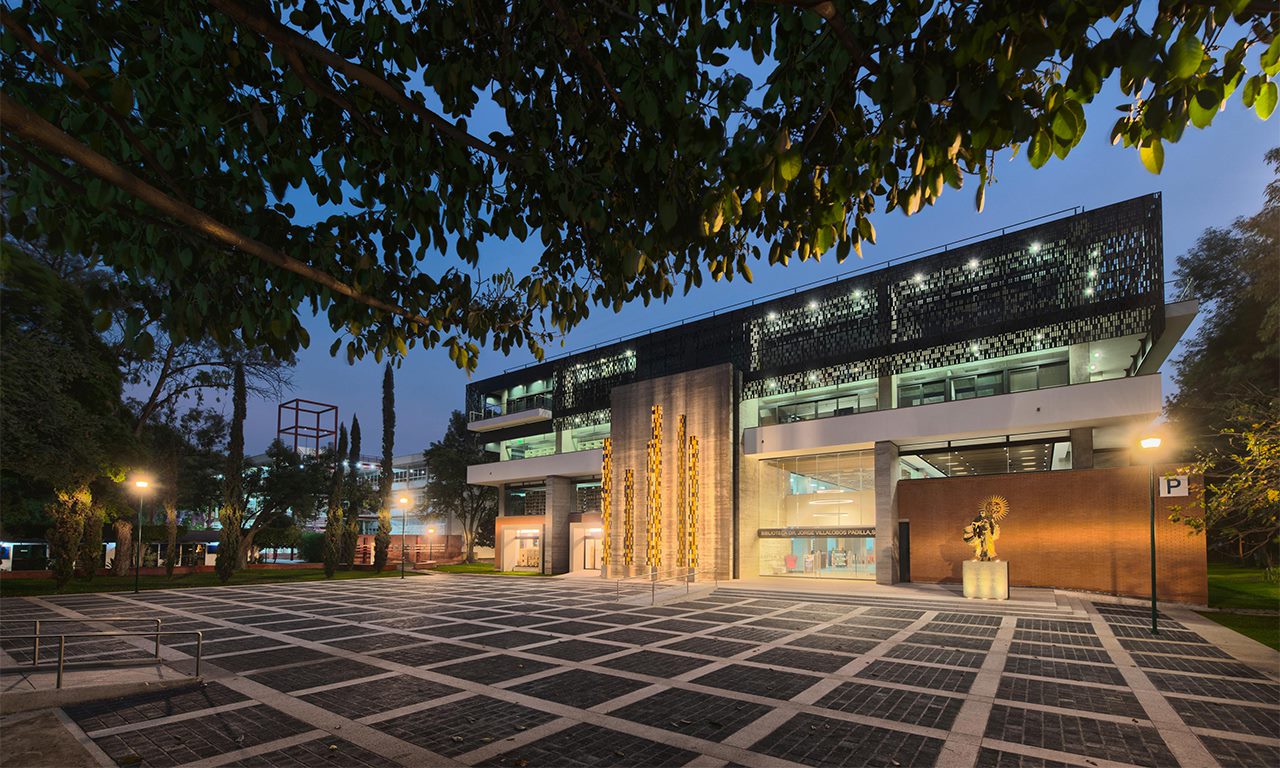
ITESO’s library houses more than 640,000 physical volumes and 200,000 digital resources, including books, journals, blueprints, films, and a collection of rare and antique books. Open to the public, the library features reading rooms, exhibition spaces, a cinema, an agora, a material library, and collaborative workspaces.
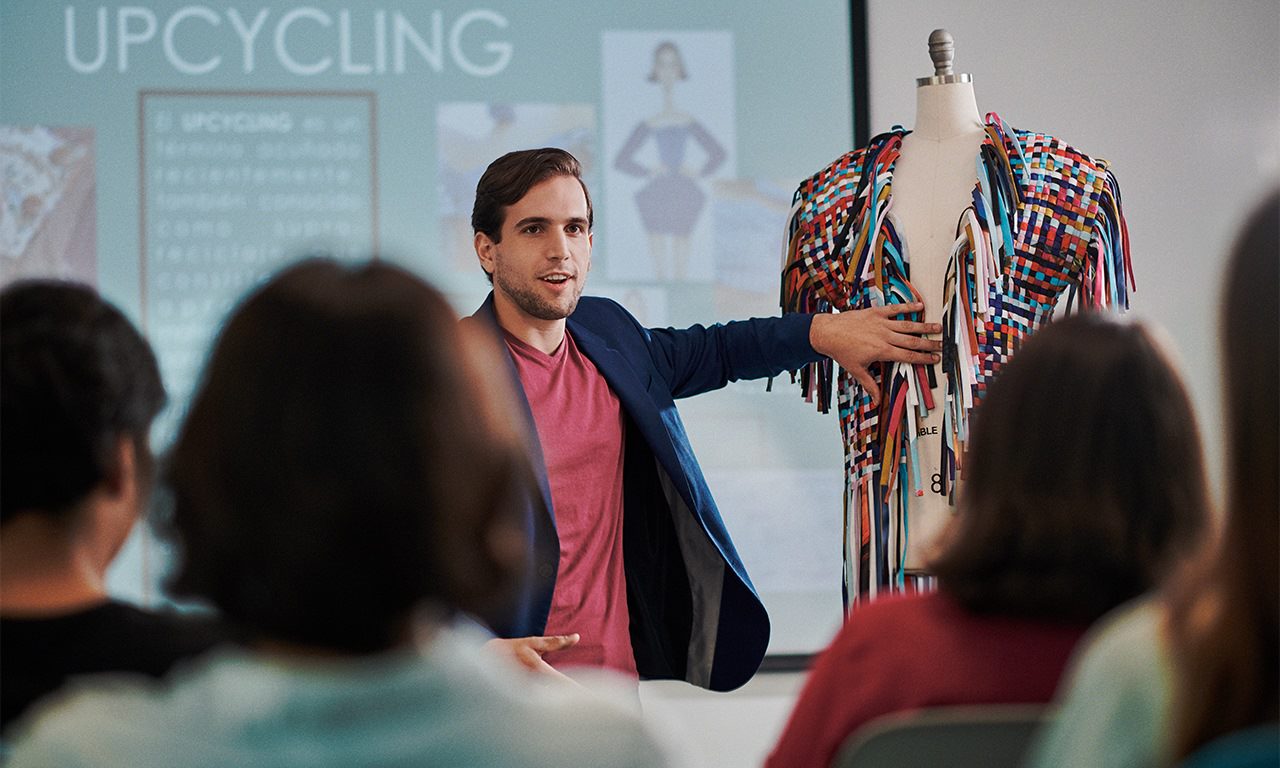
ITESO offers expert consulting and support for businesses at all stages of development through the Center for Innovation and Technology Management, the High-Impact Social Innovation Center, and the University-Business Center. Graduate students engage in projects focused on entrepreneurship, innovation, business acceleration, solidarity economies, and fair trade alternatives.
Distinguished faculty
Research programs
Academic mobility
Sustainability
Computer systems
Endowed chairs
Publications
Partnerships
Library
Business & Entrepreneurship
ITESO’s graduate programs are supported by a renowned academic faculty comprising leading experts in their fields, who are actively engaged in real-world projects that offer concrete solutions. The university boasts over 100 researchers, 79 of whom are affiliated with Mexico’s National System of Researchers (SNII). Some are also members of the Mexican Academy of Sciences.
Research at ITESO generates new, rigorous, and relevant knowledge focused on some of the region’s and country’s most pressing challenges. Areas of impact include human rights, access to justice, renewable energy, sustainable resource management, food security, mental health and well-being, quality education, data science, and public communication, among others. These programs aim to offer development alternatives, influence public policy, foster technological innovation, and promote socially impactful projects.
One of the key advantages of ITESO’s graduate programs is the opportunity for international academic exchange through alliances with the International Association of Jesuit Universities (IAJU), a global network of over 320 institutions. Additionally, programs supported by Conacyt offer research stays in Mexico and abroad for fieldwork, study, or the completion of research projects.
Sustainability is an institutional priority that drives research, education, and community engagement projects at ITESO. These initiatives aim to develop comprehensive, long-term strategies for ecosystem stewardship that are in harmony with local communities. ITESO’s campus is one of the most sustainable in the country, and among the few in the world with a protected forest on its grounds.
ITESO offers access to more than 100 specialized laboratories in areas such as nanotechnology, data science, food engineering, mechatronics, biotechnology, chemistry, systems, communication, multimedia, languages, nutrition, neuromarketing, arts, building technologies, and more. Facilities also include simulated courtrooms, exhibition spaces, mediation rooms, and audiovisual projection labs.
ITESO’s endowed chairs foster dialogue, critical thinking, and the exchange of ideas across sectors. They provide spaces for collaboration between academia, industry, and civil society, aimed at generating knowledge with high social impact. These initiatives also strengthen academic networks and support faculty and student mobility.
With more than 80 active academic journals and a robust catalogue of books, ITESO leads private universities in the region in scholarly publishing. Publications cover diverse disciplines, promote interdisciplinary collaboration, and are widely accessible—many available for free download online.
ITESO holds the most significant number of industry collaboration agreements among private universities in western Mexico. The university also offers dual-degree programs with institutions such as the University of Koblenz (Germany), Boston College, and Central Michigan University (USA).
ITESO’s library houses more than 640,000 physical volumes and 200,000 digital resources, including books, journals, blueprints, films, and a collection of rare and antique books. Open to the public, the library features reading rooms, exhibition spaces, a cinema, an agora, a material library, and collaborative workspaces.
ITESO offers expert consulting and support for businesses at all stages of development through the Center for Innovation and Technology Management, the High-Impact Social Innovation Center, and the University-Business Center. Graduate students engage in projects focused on entrepreneurship, innovation, business acceleration, solidarity economies, and fair trade alternatives.
INVESTIGACION_ITESO_GENERALES_POSGRADOS_TESTIMONIO
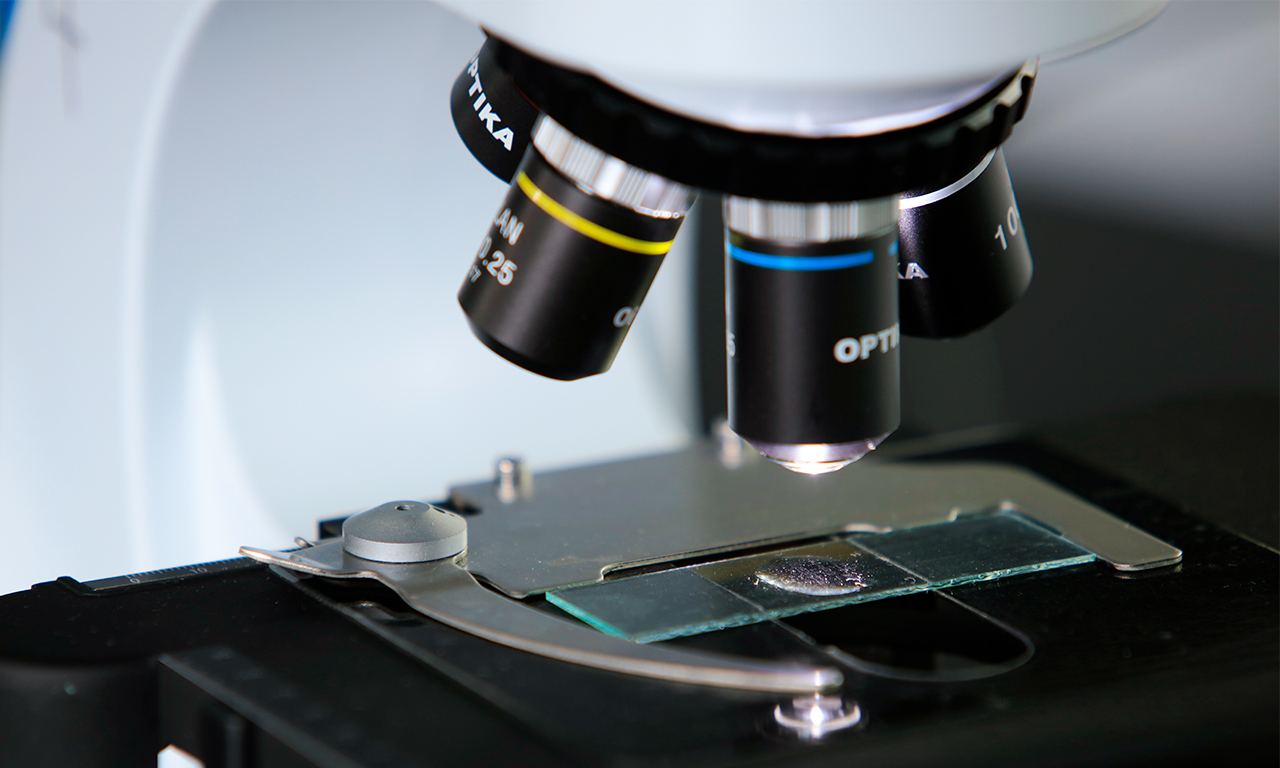
Research at ITESO
“Universities are called to be places of possibilities — to open horizons through research and engagement”.
Arturo Sosa, SJ
ACTIVIDADES_MPES_BC6
Noticias
Asset Publisher
OTROS_POSGRADOS_TITULO_GENERALES_POSGRADOS_BL3
Other graduate programs you may be interested in


